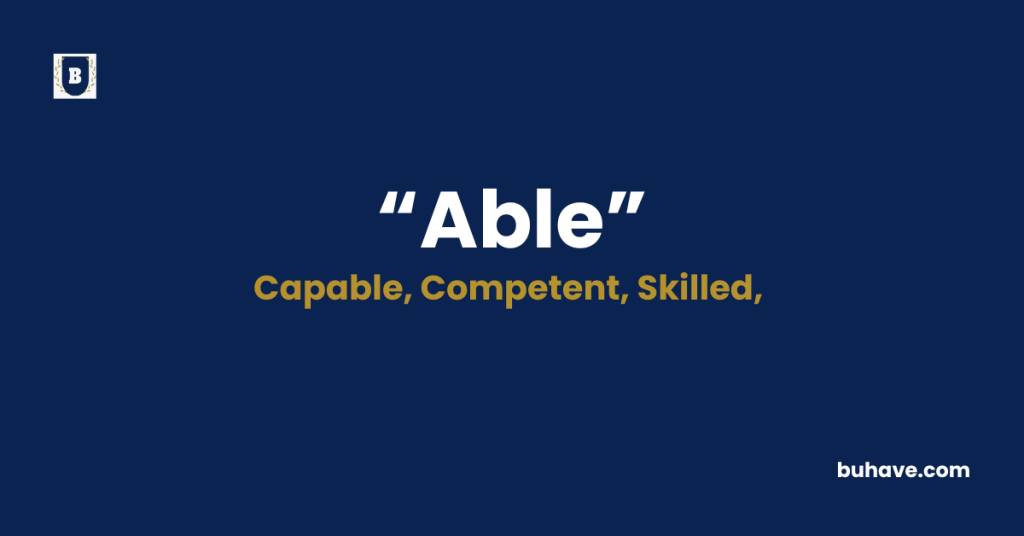Overview
The word ‘Able’ (Adjective) describes having the power, skill, or means to do something effectively. It highlights capability, competence, and readiness in many situations. In this guide, you’ll learn the complete definition, synonyms, antonyms, etymology, and practical examples of how to use it correctly in sentences.
Able Explained in Depth
A complete and detailed guide to the word Able including meaning, definition, examples, etymology, synonyms, and antonyms.
Meanings of Able
This adjective refers to someone who has the strength, knowledge, or opportunity to accomplish a task. It conveys sufficiency and competence. For instance, a student might be capable of solving complex problems, or a leader may show the talent to inspire others. In daily usage, it emphasizes both potential and readiness.
Definition
Able means having the required power, knowledge, resources, or skill to achieve something. It indicates fitness or qualification for a particular task. The word is often linked to resilience and determination in facing challenges successfully.
Etymology
The term comes from Old French able, which stems from Latin habilis, meaning “easily handled” or “fit.” Its root habere means “to have” or “to hold.” It entered English in the 14th century, retaining its sense of capability and competence across both physical and intellectual contexts.
Example Sentences
- She is capable of speaking three different languages fluently.
- The team managed to finish the project ahead of schedule.
- Despite difficulties, he remained competent in handling his duties.
- Doctors succeeded in saving the patient after hours of surgery.
- Being skilled at adapting quickly is a valuable strength in today’s workplace.
Able Synonyms
- Capable
- Competent
- Qualified
- Proficient
- Skillful
- Talented
- Equipped
- Effective
- Fit
- Adept
Able Antonyms
- Incapable
- Unqualified
- Inept
- Unfit
- Powerless
- Helpless
- Incompetent
- Deficient
- Unable
- Weak
FAQs about Able
1. What does able mean in simple words?
It means having the skill, power, or chance to do something.
2. Is able the same as capable?
They are similar, but “capable” often points to potential, while “able” refers to immediate ability.
3. Can it describe objects?
Usually it refers to people, but sometimes systems or tools, e.g., “The software can process data quickly.”
4. Is it formal or informal?
It’s neutral and can be used in both casual and professional contexts.
5. What is the opposite of able?
Words like unable, “incapable,” or “incompetent” are direct opposites.

















